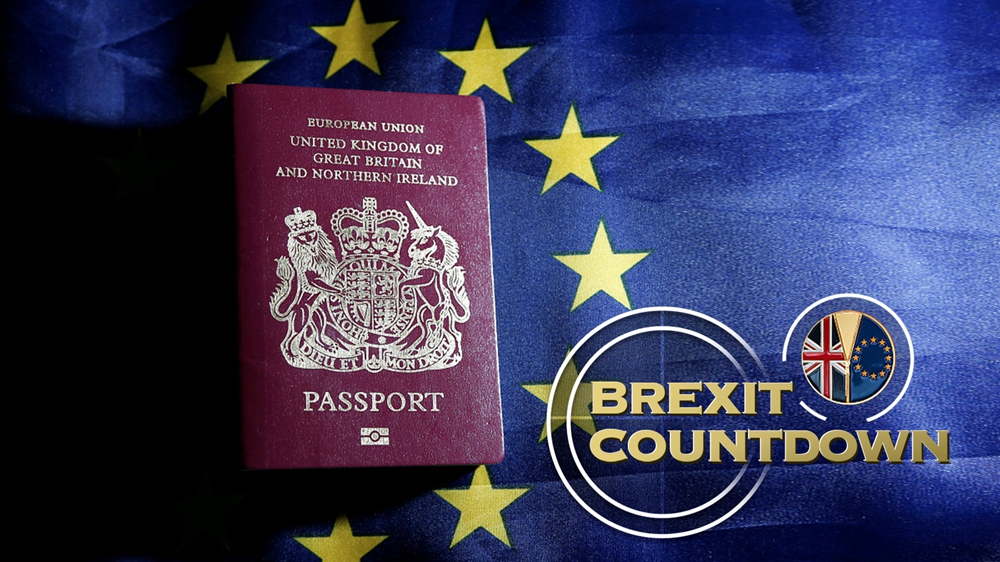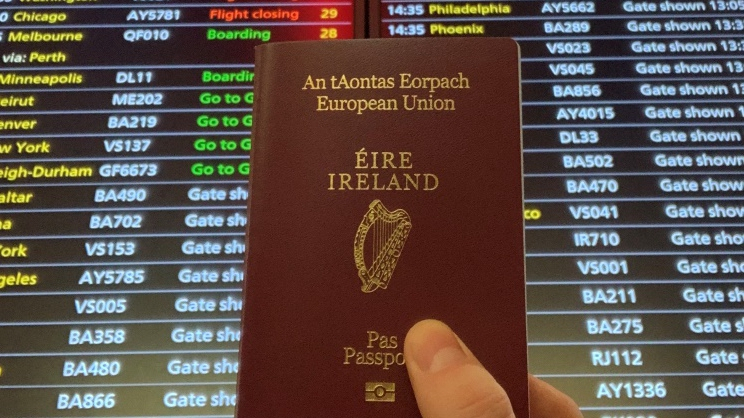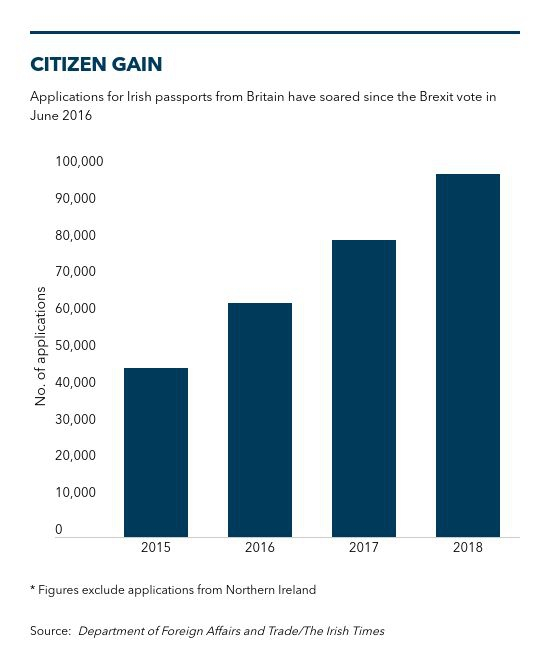
Europe
16:38, 12-Mar-2019
Passport politics in post-Brexit Britain
Updated
20:00, 12-Mar-2019
Patrick O'Donnell

I am one of the 200,000 Britons to have applied for an Irish passport in the wake of the vote to leave the EU. A week ago, I got to use it.
"So, you're Irish?"
"Yes."
"And the rest of your family are English?"
"British, yes."
Long pause. Stamp. "Ok, welcome to the U.S."
I am one of the more than 200,000 people from Great Britain to have applied for an Irish passport since the Brexit vote in June 2016 and this brief interaction with a border guard at Denver International Airport last week was the first time I had to declare my new nationality.
I was born in England, I grew up here and it is where I have made my home with my wife and two children. So, did I feel like a traitor declaring myself as anything but English? Not at all.

The process of getting an Irish passport takes around nine months. /CGTN Photo
The process of getting an Irish passport takes around nine months. /CGTN Photo
My reasons for applying for an Irish passport will be familiar to anyone following the Brexit debate: that I belong to the 48 percent who voted to remain in the European Union and my ancestry allows me to (in one sense) do this. It also allows me to continue travelling freely throughout the bloc if Britain does leave.
Britain and Ireland will always be connected due to their shared history, but the nations are moving in vastly different directions. Having ancestry from both nations, I have always been proud of my dual heritage, but in the wake of the Brexit vote the pull of my Irish half has increased. The 'Little Englander' rhetoric that has surrounded the debate doesn't chime with me – I am fine with the fact that Britain is no longer a world power and I don't long wistfully for the days of Empire. Prime Minister Theresa May announced "the iconic blue passport will return after we leave the European Union in 2019". I'm very happy with my red one, thanks – and the visa-free or visa-on-arrival access it gives me to 185 countries. Ireland is proudly European and so am I.
The process
It was a fairly long process to get my Irish passport – for which you are eligible if one of your parents or one of your grandparents was born on the island of Ireland.
My father's entire family was born in Ireland, apart from him. So, I had to go through the slightly longer-winded process of applying through my grandparents. First, I had to apply for Irish citizenship, which involved sending off various forms and documents including birth, marriage and death certificates relating to me, my father and my grandmother. To "register a foreign birth" it cost 278 euros.
My certificate of citizenship took about six months to arrive – The Department of Foreign Affairs and Trade (DFA) warns "it may take up to 12 months to process an application." I then had to apply for my passport, which cost a further 80 euros for the standard 10-year version and took another three months to drop through my letterbox.

Applications for Irish passports from UK have soared since the Brexit vote in June 2016. /CGTN Photo
Applications for Irish passports from UK have soared since the Brexit vote in June 2016. /CGTN Photo
Brexit boom
This long turnaround time is not a surprise. Since the vote to leave the EU, applications for Irish passports from Britain have soared. In 2015, the year before the vote, around 46,000 applications were made. By the end of 2017 that number had nearly doubled to almost 81,000. And, according to the DFA, that figure rose by 22 percent last year to 98,544 applications.
In the wake of the Brexit vote, Charlie Flanagan, then Ireland's foreign minister, warned a "surge in applications for Irish passports will place significant pressure on the system and on turnaround times."
On my return to London Heathrow Airport, the border guard didn't question my nationality. I imagine he has seen plenty of Irish passports nestling beside their British counterparts over the past few years – and, depending on the outcome of the Brexit negotiations, he could be seeing plenty more in the years to come.

SITEMAP
Copyright © 2018 CGTN. Beijing ICP prepared NO.16065310-3
Copyright © 2018 CGTN. Beijing ICP prepared NO.16065310-3